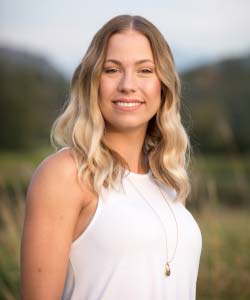Upgrading and University Preparation

Associate Professor
Upgrading and University Preparation
Abbotsford campus, D3310
Phone: 1-604-504-7441 ext. 4358
email HelenMy connection to UFV started as a student. After studying and working abroad for 8 years, I was happy to return to Canada, and I have enjoyed teaching at UFV since 2001. I currently work in the UUP Department, but I have also taught for the ELS program and TESL program. I am very thankful for all the valuable insights learned while teaching English in varied contexts with diverse students and language professionals. Over the years, my experiences with students, instructors, and staff have inspired me in many ways. It has been so rewarding to see students engage and become more empowered communicating with others. Professional development opportunities, participating in a variety of UFV committees, working with community partners, and being a mentor to new teachers has continued to help me reflect and grow as a teacher.
My teaching philosophy has been informed by research, professional development opportunities, classroom observation, and my experiences teaching English and learning other languages. I am very thankful for the invaluable insights that I have learned while working with diverse students and language professionals in a variety of contexts. For example, living overseas for several years and my attempts at learning other languages has helped me better understand some of the challenges language learners face. I will continue to seek out learning opportunities that can help me better meet the needs of students and my community.
Teaching and learning benefit from a cyclical process of investigation, implementation, reflection, and response. Educators need to be informed and responsive to changing needs; therefore, they have to elicit from students to find out what they know and what questions they have. It is important to listen and observe carefully to better understand and respond to what might not be said directly. Ensuring different ways to assess understanding of course content and being open to respond to unexpected teachable moments is also important.
A flexible multi-modal approach that integrates activities for different learning styles, scaffolds learning opportunities, and encourages student input is critical. Students need to be active participants in the learning process as they set personal goals, research information, work critically with texts, negotiate meaning with others, and offer or respond to feedback. Effective learning needs opportunities to develop not only content knowledge but also an awareness of how one learns and the strategies that can be used to help reach learning goals.
From a language learning perspective, my beliefs are influenced by the Canadian Language Benchmarks and the comprehensive view of communicative competence. Proficiency in a language includes the ability to communicate in all aspects of language: linguistic, sociolinguistic, discourse, and strategic. Teachers should guide attention to the form, meaning, and use of language in a variety of contexts. For example, there should be opportunities for analysis of language, focused practice, and communicative tasks that help students apply what they have learned beyond the classroom.
Finally, a critical factor needed for active engagement is a comfortable and supportive learning environment where everyone feels respected and part of a community where it is safe to ask questions and share ideas. Communicating ideas through multiple modes and integrating different student groupings can help create a positive learning environment. Transparency is also needed. This involves clearly communicating objectives and expectations, drawing attention to the purpose and relevance of activities, providing clear instructions, explaining evaluation criteria in a timely manner, monitoring and assessing understanding, and communicating specific constructive feedback in a variety of ways such as self, peer, and teacher guided.
My main teaching interests are related to helping students reach their academic and professional goals by developing their English language skills. I teach ENGL 071, 081, 099, EAP 084, and ENGL 081 with a healthcare focus. However, I have enjoyed teaching many other ESL, EAP, and TESL courses in the past.
Brinton, D. & Butner, H. (May, 2012). Is Pronunciation Teaching Ethical? Contact: English Language Learning Magazine, 38 (2), 76-89.
Archway Community Services – LINC program

Upgrading through UFV was absolutely the right decision for me. I could get my foot in the door at a wonderful university, and despite having not yet completed high school, I feel like a real university student! The upgrading courses are fun and have a relaxed environment — allowing you to thrive and flourish academically.